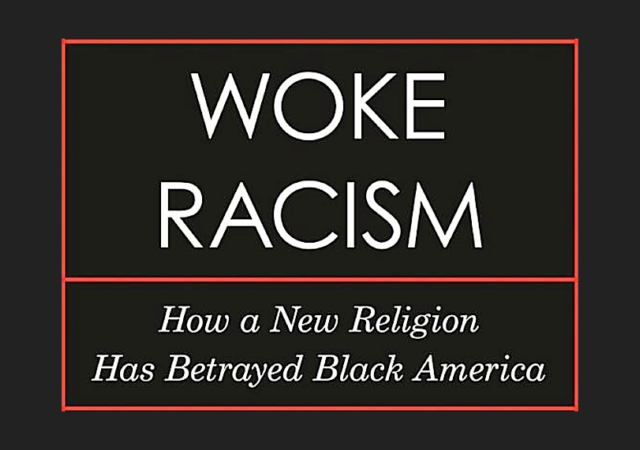John McWhorter is a linguist who has made a small splash repping the more scientifically-minded mainstream center-left in papers like the New York Times and the Atlantic. According to Wikipedia, he was called a “radical centrist” 20 years ago. This characterization appears to stem largely from his view, the focus of much of his prolific extra-linguistic work, that America’s obsession with race is in some ways harming black people even as we’ve made dramatic egalitarian progress since the 90s.
The idea that “social justice warriors” are harmful isn’t new — I could swear that term predates the 2010s — but McWhorter’s unique spin is in the subtitle: “How a New Religion Has Betrayed Black America.”

And he really means that, writing:
I do not mean that these people’s ideology is ‘like’ a religion… I mean that it actually is a religion… An anthropologist would see no difference in type between Pentecostalism and this new form of antiracism.
To be precise on who “these people” are, the antiracists he’s referring to are the sort of White Fragility loving, Ta-Nehisi Coates quoting, virtue signaling Black Lives Matter-ers. These are the athletes in what I’ve been calling the “woke olympics” for some years now. But McWhorter, being a linguist — and doubling down on the religion angle — goes to great lengths to adopt and proselytize the term an essayist he admires has coined for them: the Elect.
I will not title them “social justice warriors.” That and other labels such as “the woke mob” are unsuitably dismissive… We will term these people the Elect. They do think of themselves as bearers of a wisdom… as having been chosen, as it were… as understanding something most do not.
I’m not sure I love it, but all right. Is this really a religion, though? McWhorter’s subsections address what he sees are clear parallels to the familiar religions: “The Elect have a clergy”; “The Elect have original sin” — white privilege, of course; “The Elect are evangelical”; “The Elect ban the heretic”; and on, and on. The one that landed for me is the idea that you can’t meaningfully explore any concepts with them: “white privilege”, “necessary allyism”, “doing the work”, you name it. They clam up, they turn it around to be an attack on you, it’s just that Chili Peppers song: “if you have to ask, you’ll never know.” In that sense, it is very much like a faith-based belief.
What’s attractive about this religion? It’s a lot clearer for white people today, who might feel like they missed the opportunity to claim the right side of history during the civil rights movement and are inventing another conflict to win. But for black people who buy into it, McWhorter has a tougher appeal to learned helplessness in two parts: fractured self-image from the ravages of Jim Crow — the noble victim for whom “alienation is therapeutic” — and imposed welfare from both well-meaning Great Society types and militant leftists hoping to bring about the end of capitalism. (Apparently much of McWhorter’s earlier scholarship focuses on this black helplessness idea, so this book touches only lightly upon it — but his claim that the National Welfare Rights Organization tried to collapse the economy on purpose didn’t quickly bear itself out from a quick Wikipedia dive, so I doubt whether this historical interpretation is robust.)
OK, but why is this religion harmful? And here’s where I agree: “Do not heed those who say that this religion isn’t important. Make no mistake: they’re coming for your kids.” What’s maybe most interesting about the book, then, is what it is not: it is not a handbook for changing minds. Rather, it’s a book that highlights what McWhorter sees as the most pernicious aspects of what the Elect do and, in that context, practical tips for peacefully co-existing without getting cancelled.
That said, McWhorter isn’t only a naysayer. He acknowledges the real and ongoing harms afflicting black people in America today, and he has a platform of priorities to address them:
- Fight to end the war on drugs.
- Make sure kids not from book-lined homes are taught to read with phonics.
- Advocate vocational training for poor people and battle the idea that “real” people go to college.
What’s frustrating for me is that these seem like the most basic, common sense appeals we could imagine. Are they radical? But all we get from the left as a platform nowadays is DEI scolding and anti-Trumpism. Is anyone seriously working to improve our lives?
2021, 201 pages.